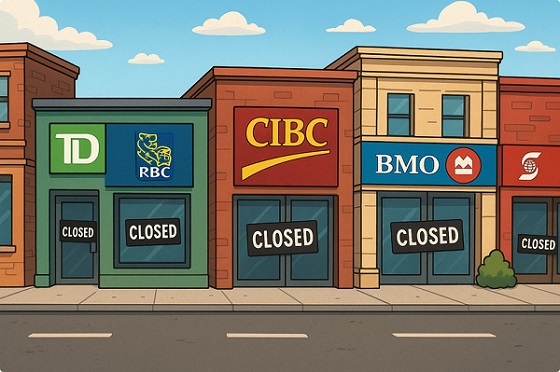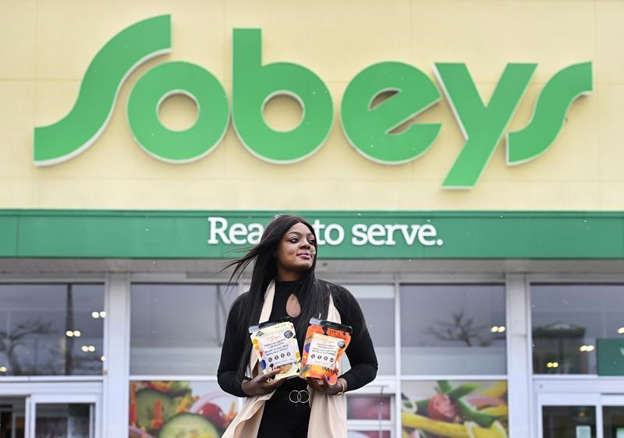Banks
International Monetary Fund paper suggests CBDCs could turn society cashless

From LifeSiteNews
A working paper by the International Monetary Fund suggests that cash may disappear from society entirely once central bank digital currencies become mainstream.
Digital currencies like CBDCs could make cash extinct, whether by design or through market preference, according to an IMF working paper.
With widespread digital currency adoption, cash may go the way of the dodo bird, and it would be “challenging and costly” to revive it if a society were to go fully cashless, according to the IMF working paper, Could Digital Currencies Lead to the Disappearance of Cash from the Market? by Marco Pani and Rodolfo Maino.
The disappearance of cash, according to the authors, could come about either through direct policy or as a natural part of innovation and digital currency adoption.
They say that “the introduction of a DC [Digital Currency] in a diverse payment ecosystem—comprising cash, traditional payment cards, and modern electronic money—where the use of physical cash has already declined significantly, could lead to the complete disappearance of cash, even if such an outcome were not an intentional policy objective.”
READ: Financial expert warns all-digital monetary system would enable ‘complete control’ of citizens
The authors looked at how merchants and customers use physical cash and cards, and simulated how the introduction of digital currencies could either complement cash and cards or wipe them out completely.
According to the report, the introduction of a new currency can alter the market equilibrium in several qualitatively different ways:
- It may displace one of the exiting currencies (either cash or cards);
- It may replace both currencies; or
- It may continue to be used indefinitely alongside the other two currencies.
"You could have a potentially […] darker world where the government decides that [CBDC] can be used to purchase some things, but not other things that it deems less desirable like say ammunition, or drugs, or pornography, or something of the sort": Eswar Prasad, WEF #AMNC23 pic.twitter.com/KkWgaEWAR5
— Tim Hinchliffe (@TimHinchliffe) June 28, 2023
Programmable digital currencies like Central Bank Digital Currencies (CBDCs) cannot operate without pegging every user to a digital identity.
What’s more, these programmable digital currencies can be controlled remotely, so that taxes and fines could automatically be taken out of accounts, or so that restrictions could be placed on what you could buy, where you could buy it and when.
Last year, the IMF published a policy brief acknowledging that CBDCs could be used for state surveillance while posing risks to privacy and cybersecurity that could undermine trust in central bank money.
According to the November 2024 IMF brief, Central Bank Digital Currency: Progress And Further Considerations:
CBDC, as a digital form of central bank money, may allow for a ‘digital trail’—data—to be accessed, collected, processed and stored.
In contrast to cash, CBDC could be designed to potentially include a wealth of personal data encapsulating transaction histories, user demographics, and behavioral patterns.
Personal data could establish a link between counterparty identities and transactions.
While the IMF acknowledges the risks to privacy, the potential for government surveillance, and how public and private entities could leverage user data for nefarious means, it is still plowing ahead with a CBDC Handbook for central banks and governments to follow during their rollouts.
READ: International Monetary Fund ‘working hard’ on a global Central Bank Digital Currency platform
The IMF consistently says that digital currencies should be complementary to physical cash and to not replace it, but all signs point towards the erosion of cash over time, whether through convenience or coercion — carrot or stick.
Speaking at the World Economic Forum’s (WEF) Special Meeting on Global Collaboration, Growth and Energy Development last year, Central Bank of Bahrain governor Khalid Humaidan told the panel “Open Forum: The Digital Currencies’ Opportunity in the Middle East” that one of the goals of CBDC was to replace cash, at least in Bahrain, and to go “one hundred percent digital.”
"We're probably going to stop calling it central bank digital currency [CBDC]. It's going to be a digital form of cash, and at some point in time hopefully we will be able to be 100% digital": Central Bank of Bahrain Governor Khalid Humaidan to the WEF https://t.co/Pspr0M1Uuq pic.twitter.com/N5aOkCpzh1
— Tim Hinchliffe (@TimHinchliffe) April 29, 2024
“If we think cash is the analogue and digital currency is the form of digital — CBDC is the digital form of cash — today, clearly we’re in a hybrid situation; we’re using both,” said Humaidan.
We know in the past when it comes to cash, central bankers were very much in control with all aspects of cash, and now we’re comfortable to the point where the private sector plays a big role in the printing of the cash, in the distribution of the cash, and with the private sector we use interest rates to manage the supply of cash.
The same thing is likely to happen with CBDC. Yes, the central bank will have a role, but at some point in time — the same way we don’t call it ‘central bank cash’ — we’re probably going to stop calling it central bank digital currency.
It’s going to be a digital form of the cash, and at some point in time hopefully we will be able to be one hundred percent digital.
"Is it [digital euro] going to be as private as cash? No. A digital currency will never be as anonymous and as protecting of privacy in many respects as cash, which is why cash will always be around": Christine Lagarde, BIS Innovation Summit, March 2023 #CBDC pic.twitter.com/BLMVOPax6a
— Tim Hinchliffe (@TimHinchliffe) April 11, 2023
While the IMF advises to not eliminate cash altogether, central banks and governments are already moving in that direction.
Furthermore, a WEF Agenda blog post from September, 2017 lists the “gradual obsolescence of paper currency” as being “characteristic of a well-designed CBDC.”
If cash were to go extinct, the latest IMF working paper warns, “reintroducing cash in a non-cash system would be challenging and costly.”
Therefore, the authors conclude:
To safeguard the continued utilization of cash and to uphold the equilibrium of the payment system, the study advocates for a proactive policy approach and for the implementation of measures aimed at ensuring the sustained relevance of physical currency, especially in scenarios where the introduction of new digital currencies might inadvertently lead to the extinction of traditional cash.
The IMF working paper Could Digital Currencies Lead to the Disappearance of Cash from the Market? was published on the IMF website in March 2025; however, the paper was first published in the International Advances in Economic Research journal on February 19, 2024 under its original title, Could CBDCs Lead to Cash Extinction? Insights from a ‘Merchant-Customer’ Model.
Reprinted with permission from The Sociable.
Note from LifeSiteNews co-founder Steve Jalsevac: This article is a must-read and view for all readers because of the profound personal impact a digital economy would have on every individual and every family.
The great Catherine Austin Fitts has strongly recommended that every citizen use cash as much as possible for purchases. She says that if millions did this, it would delay, if not stop, a forced digital economy. She should know. Fitts emphasizes, “In a highly leveraged financial system such as we have, a single individual counts for a lot.”
See her article, I Want to Stop CBDCs – What Can I Do
The increased use of credit and debit cards, including phone and other digital payment systems, is tempting because of their convenience. Still, it is also your cooperation in building your economic prison and total control of all that you say and do, where and when you travel, what you buy or subscribe to, and so on. We are facing a totalitarian control that has never before been experienced in human history. It is beyond frightening.
Carrying and using cash for purchases, and refusing to purchase anything from shops, restaurants or other services that do not accept cash or checks, is inconvenient and requires a little effort, commitment and some degree of courage.
Banks
Debanking Is Real, And It’s Coming For You

From the Frontier Centre for Public Policy
Marco Navarro-Genie warns that debanking is turning into Ottawa’s weapon of choice to silence dissent, and only the provinces can step in to protect Canadians.
Disagree with the establishment and you risk losing your bank account
What looked like a narrow, post-convoy overreach has morphed into something much broader—and far more disturbing. Debanking isn’t a policy misfire. It’s turning into a systemic method of silencing dissent—not just in Canada, but across the Western world.
Across Canada, the U.S. and the U.K., people are being cut off from basic financial services not because they’ve broken any laws, but because they hold views or support causes the establishment disfavors. When I contacted Eva Chipiuk after RBC quietly shut down her account, she confirmed what others had only whispered: this is happening to a lot of people.
This abusive form of financial blacklisting is deep, deliberate and dangerous. In the U.K., Nigel Farage, leader of Reform UK and no stranger to controversy, was debanked under the fig leaf of financial justification. Internal memos later revealed the real reason: he was deemed a reputational risk. Cue the backlash, and by 2025, the bank was forced into a settlement complete with an apology and compensation. But the message had already been sent.
That message didn’t stay confined to Britain. And let’s not pretend it’s just private institutions playing favourites. Even in Alberta—where one might hope for a little more institutional backbone—Tamara Lich was denied an appointment to open an account at ATB Financial. That’s Alberta’s own Crown bank. If you think provincial ownership protects citizens from political interference, think again.
Fortunately, not every institution has lost its nerve. Bow Valley Credit Union, a smaller but principled operation, has taken a clear stance: it won’t debank Albertans over their political views or affiliations. In an era of bureaucratic cowardice, Bow Valley is acting like a credit union should: protective of its members and refreshingly unapologetic about it.
South of the border, things are shifting. On Aug. 7, 2025, U.S. President Donald Trump signed an executive order titled “Guaranteeing Fair Banking for All Americans.” The order prohibits financial institutions from denying service based on political affiliation, religion or other lawful activity. It also instructs U.S. regulators to scrap the squishy concept of “reputational risk”—the bureaucratic smoke screen used to justify debanking—and mandates a review of past decisions. Cases involving ideological bias must now be referred to the Department of Justice.
This isn’t just paperwork. It’s a blunt declaration: access to banking is a civil right. From now on, in the U.S., politically motivated debanking comes with consequences.
Of course, it’s not perfect. Critics were quick to notice that the order conveniently omits platforms like PayPal and other payment processors—companies that have been quietly normalizing debanking for over a decade. These are the folks who love vague “acceptable use” policies and ideological red lines that shift with the political winds. Their absence from the order raises more than a few eyebrows.
And the same goes for another set of financial gatekeepers hiding in plain sight. Credit card networks like Visa, American Express and Mastercard have become powerful, unaccountable referees, denying service to individuals and organizations labelled “controversial” for reasons that often boil down to politics.
If these players aren’t explicitly reined in, banks might play by the new rules while the rest of the financial ecosystem keeps enforcing ideological conformity by other means.
If access to money is a civil right, then that right must be protected across the entire payments system—not just at your local branch.
While the U.S. is attempting to shield its citizens from ideological discrimination, there is a noticeable silence in Canada. Not a word of concern from the government benches—or the opposition. The political class is united, apparently, in its indifference.
If Ottawa won’t act, provinces must. That makes things especially urgent for Alberta and Saskatchewan. These are the provinces where dissent from Ottawa’s policies is most common—and where citizens are most likely to face politically motivated financial retaliation.
But they’re not powerless. Both provinces boast robust credit union systems. Alberta even owns ATB Financial, a Crown bank originally created to protect Albertans from central Canadian interference. But ownership without political will is just branding.
If Alberta and Saskatchewan are serious about defending civil liberties, they should act now. They can legislate protections that prohibit financial blacklisting based on political affiliation or lawful advocacy. They can require due process before any account is frozen. They can strip “reputational risk” from the rulebooks and make it clear to Ottawa: using banks to punish dissenters won’t fly here.
Because once governments—or corporations doing their bidding—can cut off your access to money for holding the wrong opinion, democracy isn’t just threatened.
It’s already broken.
Marco Navarro-Genie is vice-president of research at the Frontier Centre for Public Policy and co-author, with Barry Cooper, of Canada’s COVID: The Story of a Pandemic Moral Panic (2023).
Alberta
Your money isn’t as safe as you think

This article supplied by Troy Media.
The Emergencies Act proved how quickly bank accounts can be weaponized. Alberta must act now to protect its citizens.
When Eva Chipiuk (the Alberta lawyer who famously confronted former Prime Minister Justin Trudeau’s assertions at the Emergencies Act inquiry) found out her Royal Bank account was being shut down, it confirmed a chilling truth: those who challenge Ottawa are not safe from retribution.
Chipiuk committed no crime and was not charged with any offence. However, the Montreal-based Royal Bank refused to provide her services, citing an unspecified risk. The message is clear: if you challenge Ottawa, you may risk being treated as an economic non-person. This comes just months before Tamara Lich, an Alberta resident, is expected to be sentenced for standing up against COVID overreach.
The Alberta government cannot ignore these threats against its citizens. There is plenty Ottawa doesn’t like about Alberta and Albertans today. Given that, in a February 2022 Globe and Mail oped—written before he became prime minister—Mark Carney described civil protesters as “seditionists,” one doesn’t need much imagination to see how his government could treat Albertans who push for greater control over their future. The province must prepare now to shield its citizens from financial retaliation.
Albertans who think their money is safe if it’s parked at a credit union or ATB, instead of a chartered bank, are mistaken. It isn’t. Under the Criminal Code, the Proceeds of Crime (Money Laundering) and Terrorist Financing Act, and the Emergencies Act, Ottawa can force any “financial service provider”—including provincially regulated credit unions—to freeze accounts. For example, when Tamara Lich tried to open an account with ATB—Alberta’s Crown-owned financial institution—she was denied even an appointment.
Events such as these show that it doesn’t take a judge to determine you have run afoul of those laws—only a government that disagrees with you.
Alberta has the tools to defend its citizens, and it should use them. It should start by making ATB and its provincially regulated credit unions fortresses against politically motivated financial punishment. ATB, created in 1938 to shield farmers from the aggressive lending practices of Laurentian bankers, has a distinct status as an arm of the Alberta government.
That status can be leveraged today to keep Ottawa at bay by:
- Refocusing ATB on serving Albertans, not advancing trendy corporate agendas.
- Amending the ATB Financial Act to require judicial orders for any account freezes or closures, mandate public reporting of such actions, and enshrine political neutrality to ensure no Albertan is denied service for lawful political activity.
- Preparing to invoke the Sovereignty Act if Ottawa attempts another Emergencies Act-style move, instructing ATB and its credit unions to disregard unconstitutional federal orders unless validated by Alberta courts.
- Creating a Québec-style integrated financial regulator to oversee ATB and Alberta’s provincially regulated credit unions, insulating them from Ottawa’s reach.
- Exploring alternative payment systems to reduce reliance on Ottawa-controlled clearing mechanisms. Payments Canada—which Ottawa controls—could be used as a choke point against Alberta institutions. A provincial or private settlement system would blunt that weapon before it can be deployed.
Finally, Alberta should enact an Alberta Financial Rights Act guaranteeing that no one will be denied financial services and that no account can be frozen or closed without due process in open court.
Ottawa will not take this lying down. It can seek court injunctions, threaten ATB’s and our credit unions’ access to national payment systems, or pass legislation directly targeting provincial Crown corporations. Alberta must anticipate these moves now by drafting constitutional challenges, forging alliances with like-minded provinces, and building backup clearing systems.
When the federal government can freeze your account for giving $50 to the “wrong” cause, you are not a free citizen. You are a subject. The treatment of Tamara Lich and Eva Chipiuk’s debanking is a warning.
Alberta can either wait for the next wave of financial punishments to hit its citizens, or it can act decisively to make ATB and its provincially regulated credit unions fortresses that protect them. Premier Danielle Smith has a unique opportunity to put Alberta first again—and she should take it.
Marco Navarro-Genie is vice-president of research at the Frontier Centre for Public Policy and co-author, with Barry Cooper, of Canada’s COVID: The Story of a Pandemic Moral Panic (2023).
Troy Media empowers Canadian community news outlets by providing independent, insightful analysis and commentary. Our mission is to support local media in helping Canadians stay informed and engaged by delivering reliable content that strengthens community connections and deepens understanding across the country.
-

 Media1 day ago
Media1 day agoResponse to any budget sleight of hand will determine which audience media have decided to serve
-

 Frontier Centre for Public Policy1 day ago
Frontier Centre for Public Policy1 day agoCanada’s Democracy Is Running On Fumes
-

 Business1 day ago
Business1 day agoYour $350 Grocery Question: Gouging or Economics?
-

 Education1 day ago
Education1 day agoClassroom Size Isn’t The Real Issue
-

 illegal immigration22 hours ago
illegal immigration22 hours ago$4.5B awarded in new contracts to build Smart Wall along southwest border
-

 International22 hours ago
International22 hours agoMelania Trump quietly reunites children divided by Ukraine war
-

 Brownstone Institute4 hours ago
Brownstone Institute4 hours agoTrump Covets the Nobel Peace Prize
-

 International4 hours ago
International4 hours agoHamas releases all living hostages under Trump peace plan







